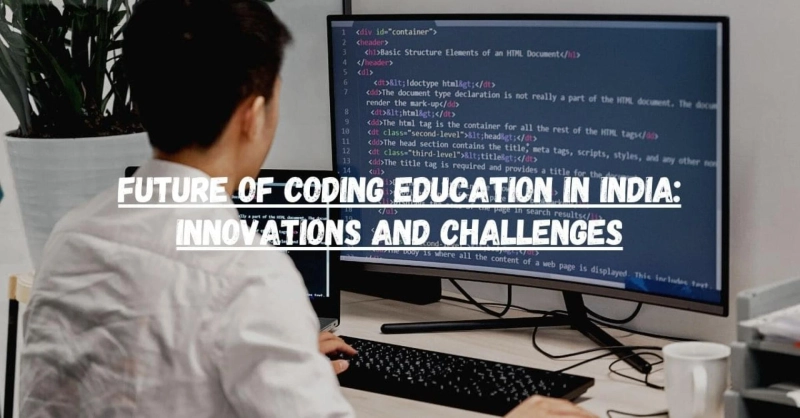The landscape of coding education in India is rapidly evolving, driven by technological advancements and the growing importance of programming skills in the digital age. In this article, we will delve into the future of coding education in India, exploring innovations and the challenges that lie ahead.
Innovations in Coding Education
1. Online Learning Platforms
The rise of online learning platforms has truly democratized coding education, ensuring that it\'s available to a wider audience than ever before. Noteworthy platforms such as Manipal Global Skills Academy (MGSA), Coursera, edX, and Udacity now provide coding courses from esteemed universities and institutions worldwide. This allows students to tailor their learning experience to their own rhythm, making coding education both adaptable and inclusive.
2. Coding Bootcamps
Coding bootcamps have gained popularity as intensive, short-term programs that equip learners with practical coding skills. These bootcamps often focus on in-demand programming languages and technologies, preparing students for immediate entry into the job market.
3. Coding in Schools
The integration of coding into school curricula is a significant innovation. India has seen efforts to introduce coding from an early age, nurturing a generation of young coders. Initiatives like "Code in Schools" aim to equip students with computational thinking and problem-solving skills.
4. AI-Powered Learning
Artificial Intelligence (AI) is transforming coding education. AI-powered platforms can assess a student\'s performance, adapt learning materials, and provide personalized feedback. This individualized approach enhances the effectiveness of coding education.
Challenges in Coding Education
1. Infrastructure and Access
While online learning has expanded access to coding education, challenges related to internet connectivity and device availability persist in many parts of India. Bridging the digital divide remains a priority to ensure equitable access to coding education.
2. Quality Assurance
Maintaining the quality of coding education is crucial. As the field evolves rapidly, ensuring that courses align with industry standards and best practices is a challenge. Quality assurance mechanisms must be in place to validate the effectiveness of coding programs.
3. Teacher Training
Coding courses in India relies on skilled educators who can guide and inspire students. Teacher training programs need to keep pace with coding innovations to ensure that educators are well-prepared to teach coding effectively.
4. Gender Disparity
There is a gender disparity in coding education and the tech industry. Encouraging more women to pursue coding and addressing gender biases in the field are challenges that require attention.
The Road Ahead
The future of coding education in India holds immense promise. To address the challenges and capitalize on innovations, several steps can be taken:
1. Infrastructure Development: Invest in improving internet connectivity and providing access to devices, especially in rural areas, to ensure equal opportunities in coding education.
2. Quality Standards: Establish and enforce quality standards for coding programs. Collaborate with industry experts to develop curriculum guidelines that reflect current industry needs.
3. Teacher Empowerment: Provide continuous professional development opportunities for coding educators. Equip them with the latest knowledge and pedagogical techniques.
4. Diversity and Inclusion: Promote diversity and inclusion in coding education and the tech industry. Encourage underrepresented groups to pursue coding and provide supportive environments.
5. Government Initiatives: Support and scale government-led coding initiatives in schools and colleges. These programs play a vital role in building a strong foundation for coding education.
In conclusion, the future of coding education in India is characterized by innovations that have made learning more accessible and personalized. However, challenges such as infrastructure disparities and the need for quality assurance remain. By addressing these challenges and fostering an inclusive and dynamic coding education ecosystem, India can prepare its workforce for the digital future and strengthen its position as a global tech hub.
The journey ahead involves collaboration between educational institutions, the government, industry stakeholders, and the coding community to ensure that coding education in India remains at the forefront of innovation and continues to empower aspiring coders across the nation.



